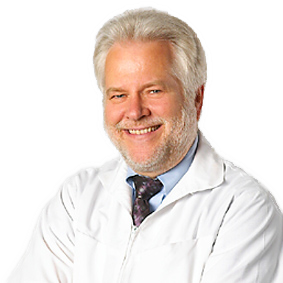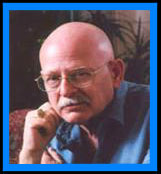Aspirin
by: Gordon Josephs, MD
Letter to the Editor:
Every patient with cardiovascular problems comes to my office taking aspirin. You hear it everywhere, especially from your doctor, "An aspirin a day will reduce heart attacks and strokes by 50%." However, it's just not so. These claims are massive exaggerations at best and shamefully skewed science at worst. Whatever the reason, too many people are taking aspirin. How did all this aspirin use get started? Let's look at the history of aspirin studies.
Doctors and others noticed that when a person on aspirin cut themselves, they seemed to bleed longer. So in 1968, Dr. J.R. O'Brian of Portsmouth, England suggested that aspirin could reduce the stickiness of platelets, and that this might reduce clot formation. He also suggested that taking an aspirin a day might prevent heart attacks, strokes from clots, and pulmonary embolisms (a clot striking the lungs). He designed a study to see if there would be less blood clots after surgical procedures if aspirin was taken. The results were published in The Lancet, the British medical journal, in 1971. Aspirin was found to be of no benefit. Regardless, the fascination with aspirin for prevention continued. In 1974 two more tests were completed in England and reported in medical journals. The tests were designed to determine if aspirin could prevent or reduce the number of second heart attacks in those who already had a previous heart attack. The British Medical Journal followed 1,233 coronary patients and The Lancet reported on 1,682 patients which were followed. Both tests suggested such a small benefit in aspirin that it was considered of no statistical significance. The matter was closed in England.
In a 1979 trial at the University of Oregon, aspirin was used to try to keep vein grafts open after coronary artery bypass surgery. Dr. George Partely reported the findings in the New England Journal of Medicine. Aspirin was of no benefit in keeping vein grafts open.
In 1980 in the USA, the National Heart, Lung, and Blood Institute (now the National Institutes of Health) did a similar study to see if second heart attacks could be avoided with aspirin. They used only people who already had a past heart attack. They spent 16 million dollars and did a much larger study than the ones done in England. Their conclusion, reported by Dr. R.L. Levy, director of National Heart, Lung, and Blood was particularly clear. Aspirin did no good in preventing a second heart attack. Aspirin did cause ulcer-like abdominal pain, stomach inflammation, and bleeding from the stomach and the intestines; 15% of the study participants had to quit due to these adverse symptoms. They advised that heart attack patients not be given aspirin on a sustained basis.
In 1980 and 1987, aspirin was combined with another drug called dipyridamole, in a multi-national European study. Studies showed stroke deaths from clots reduced 50% and heart attack deaths decreased 35%. Remember this was from aspirin plus another drug, not aspirin alone.
So up to 1987 there's still no scientific reason to take aspirin for your heart. But here's where it gets interesting. In 1988 and 1989 a big group of doctors themselves begin to take aspirin along with a matched group of doctors who did not (The Physician's Study). One group was in England, the other in the USA. The English group reported no reduction in heart attacks, hut the USA group reported "44% less non-fatal heart attacks." The 44% got stretched through popular use to 50%. Now the question is, were there just as many fatal heart attacks in the USA study? The answer: yes, there were just as many fatal heart attacks! There was no reduction in deaths.
So what is a nonfatal heart attack? A milder one. One that doesn't kill you! Well if aspirin causes 44% less of these milder heart attacks, wouldn't that be a good thing? But wait a minute! Why didn't the English study report 44% less heart attacks?
The answer is simple. The English study used pure aspirin. But in the USA, the Bufferin Company provided the aspirin and they provided Bufferin which is aspirin plus a pinch of magnesium (to soothe the stomach). As far as I'm concerned, these well-run studies proved beyond a shadow of a doubt that a pinch of magnesium reduces nonfatal heart attacks by 44%.
Can you imagine what happens when a full dose of magnesium is taken? In fact a study was done where emergency room patients with chest pain were given, or not given, a single injection of magnesium before being admitted to the hospital. There was about a 50% reduction in cardiovascular mortality (from that one shot alone) during the subsequent hospitalization!
How about stroke prevention and aspirin? There are two kinds of strokes: strokes from clots and strokes from hemorrhages. Aspirin was found to reduce strokes from clots by the same percentage that it increased strokes from hemorrhages. Any benefit is canceled out. Aspirin is said to work by reducing platelet aggregation and thus reducing clots. But there's no proof that it is clinically effective, as I have shown. In fact there are three ways to reduce platelet aggregation and aspirin works in one of those ways. Drug companies are currently looking for substances, which would work in more than one way. Such a substance might be a welcome improvement over aspirin. Most orthodox physicians, sadly, have been brainwashed via the pharmaceutical industry into believing that aspirin is effective. Most orthodox physicians do not know of any alternatives to aspirin. Yet I found it interesting that a recent poll revealed that 73% of cardiologists who prescribed aspirin for their patients, themselves take vitamin E! I suggest they have seen the studies regarding antioxidants in cardiovascular disease.
In my opinion; it would be wiser and safer to use natural substances which are known to reduce platelet aggregation. These include: magnesium, vitamin B6, vitamin E, fish oils, flaxseed oil, garlic and onion oils, ginger, feverfew, ginkgo biloba, mucopolysaccharides. bromelain, and more. Get started on these items and discontinue your aspirin now.
Gordon Josephs, MD
Managing Director
ChelationCare Centers USA
Dr. Josephs is a Diplomat, American Board of Chelation Therapy; Int. Diplomate, American Board of Oxidati'e Medicine; Diplomate in Acupuncture, SriLanka Medicina Alternativa; American Academy of Anti-Aging Medicine; President, Arizona Homeopathic and Integrative Medical Association.


